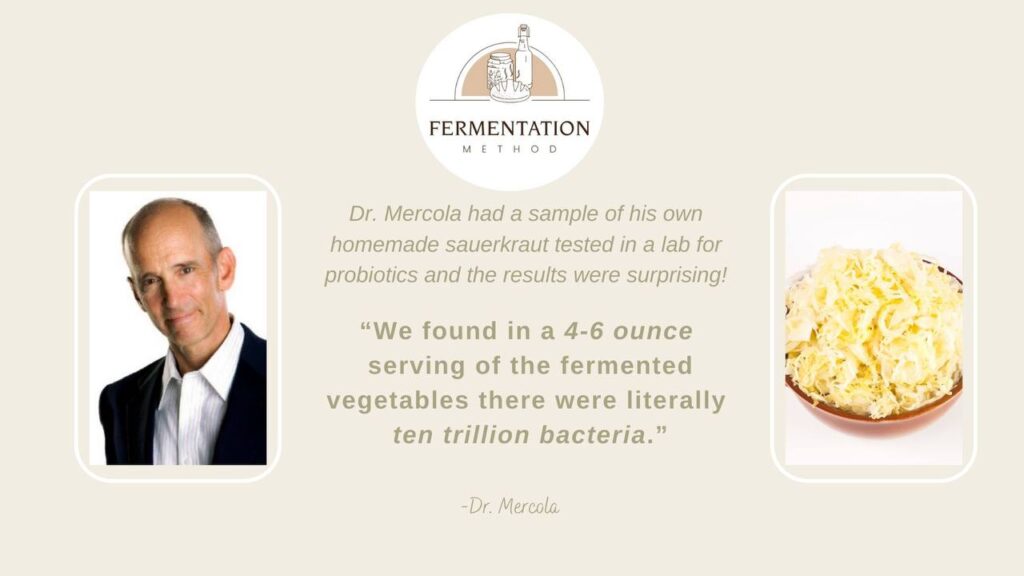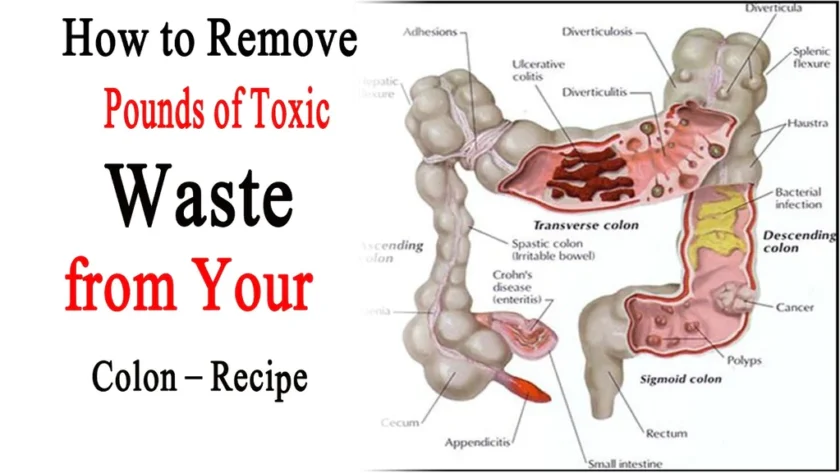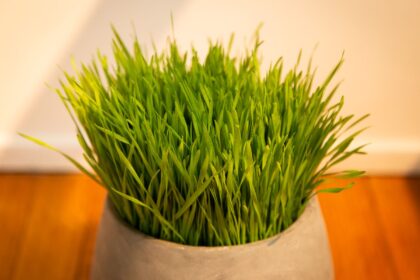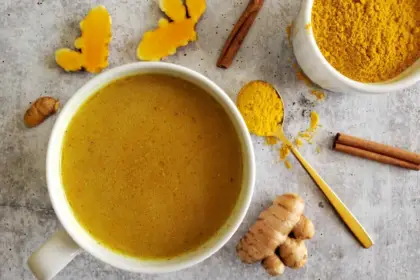Maintaining good colon health is essential for overall wellbeing. The colon, or large intestine, is responsible for absorbing water, electrolytes, and nutrients from food, and eliminating waste from the body. When the colon is not functioning properly, it can lead to various digestive problems, including constipation, diarrhea, and irritable bowel syndrome (IBS). To keep your colon healthy, there are several things you can do on a daily basis. If you do these three things daily you can lose up to 1 pound per day for a few weeks in a row, many have followed this protocol successfully before. It simply involves including specific foods in your diet.
If you go from cold-turkey to doing these three things on a daily basis you can start having larger bowel movements and cleaning out your colon very quickly. These three things compliment each other and create a much healthier and cleaner colon. Some people have lost as much as one pound per day simply doing these three things each day.
Here are three of the most important:
Eat & Drink Fermented Foods & Drinks!
Fermented foods are rich in probiotics, which are live bacteria that are beneficial for gut health. These foods include yogurt, kefir, sauerkraut, kimchi, and kombucha. Probiotics can help to restore the balance of good bacteria in the gut, which can be disrupted by factors such as antibiotics, a poor diet, and stress.
A study published in the Journal of Applied Microbiology found that probiotics can help to reduce inflammation in the gut and improve the function of the intestinal barrier, which can prevent harmful bacteria and toxins from entering the bloodstream. Another study published in the Journal of Nutrition found that consuming probiotics can help to relieve constipation and improve stool consistency.
The biggest thing you need to know here is that fermented foods and drinks are FAR better than probiotic pills. In fact, look at this statistic that Dr. Mercola discovered when he sent his sauerkraut into the lab for analysis:

If you were to compare this to a full bottle of probiotics, a full bottle of probiotics (a 30 day supply) contains about 50 billion CFU’s of probiotics on average. In other words, one four ounce serving of sauerkraut has more 200x more probiotics than an entire 30 day supply from a pill. Plus, it’s food and it’s much cheaper financially. This is why we recommend diving into FermentationMethod.com where you can learn to make your own fermented foods and drinks, including kombucha, sourdough bread and treats. This will help you transition to a diet with more fermented foods and remove toxic colon waste much easier.
Eat Fiber-Rich Foods! Both Soluble & Insoluble
Fiber is an essential nutrient for colon health, as it helps to promote regular bowel movements and prevent constipation. Fiber also helps to feed the good bacteria in the gut, which can improve overall gut health. Foods that are high in fiber include fruits, vegetables, whole grains, and legumes.
According to the American Heart Association, adults should aim to consume at least 25 grams of fiber per day. However, many people do not consume enough fiber in their diets. A study published in the Journal of the Academy of Nutrition and Dietetics found that the average American consumes only 16 grams of fiber per day. What most people don’t know however is that there are two types of fiber. There’s soluble fiber and insoluble fiber. Soluble fiber dissolves in water while insoluble fiber does not. What’s the difference? This video explains the difference between the two types of fiber and why both are important:
View this post on Instagram
By @HealthyWildFree (David Benjamin) on Instagram.
Fiber is an essential nutrient for digestive health, and it is found in a variety of foods. There are two types of fiber: soluble and insoluble. Each type of fiber has different properties and benefits for the body. Understanding the difference between soluble and insoluble fiber can help you make informed dietary choices to support digestive health.
Soluble fiber
Soluble fiber dissolves in water and forms a gel-like substance in the digestive tract. This type of fiber helps to slow down the absorption of carbohydrates and can help to regulate blood sugar levels. Soluble fiber also helps to lower cholesterol levels by binding to bile acids, which are then excreted from the body.
Soluble Fiber Foods:
- Apples: Apples are a good source of soluble fiber, with about 1 gram of fiber per medium-sized apple.
- Citrus fruits: Citrus fruits, such as oranges and grapefruits, are high in soluble fiber, with about 2 grams of fiber per medium-sized fruit.
Insoluble fiber
Insoluble fiber does not dissolve in water and passes through the digestive system mostly intact. This type of fiber helps to promote regular bowel movements and prevent constipation by adding bulk to stool. Insoluble fiber also helps to prevent colon cancer by promoting the growth of healthy bacteria in the gut.
Insoluble Fiber Foods Include:
- Vegetables: Vegetables, such as broccoli, cauliflower, and carrots, are high in insoluble fiber, with about 1-2 grams of fiber per serving.
- Nuts and seeds: Nuts and seeds, such as almonds, walnuts, and chia seeds, are good sources of insoluble fiber, with about 2-3 grams of fiber per serving.
- Fruit skins: The skins of fruits, such as apples, pears, and kiwis, are high in insoluble fiber, with about 1-2 grams of fiber per medium-sized fruit.
It is important to note that many foods contain both soluble and insoluble fiber. For example, an apple contains both soluble fiber in the form of pectin and insoluble fiber in the form of cellulose. Eating a variety of fiber-rich foods can help to ensure that you are getting both types of fiber in your diet. I like Chia seeds because they contain both soluble and insoluble fiber! A superfood worth adding to your diet.
In conclusion, both soluble and insoluble fiber are important for digestive health, and each type of fiber provides unique benefits for the body. Eating a diet rich in fiber can help to promote regular bowel movements, regulate blood sugar levels, lower cholesterol levels, and prevent colon cancer.
Drink Plenty Of Water – And Get Electrolytes in!
Staying hydrated is important for colon health, as it helps to keep stool soft and easy to pass. When the body is dehydrated, the colon can absorb more water from the stool, which can lead to constipation.
According to the National Academies of Sciences, Engineering, and Medicine, men should aim to consume about 3.7 liters (125 ounces) of water per day, while women should aim to consume about 2.7 liters (91 ounces) of water per day. However, these recommendations may vary depending on individual factors such as age, weight, and activity level.
Now, let’s talk about an important topic related to colon health: removing fecal matter from the colon. While this may not be the most pleasant topic to discuss, it is important to understand the importance of regular bowel movements and how to promote healthy elimination of waste from the body.
When fecal matter builds up in the colon, it can lead to a condition called fecal impaction, which can cause symptoms such as abdominal pain, bloating, and constipation. Fecal impaction can be caused by a variety of factors, including a low-fiber diet, dehydration, and certain medications.
Staying hydrated is important for colon health, as it helps to keep stool soft and moving out of your body, not getting dry and stuck within. Hydration is more than water however. You can drink plenty of water and just pee it all out. There are 6 electrolytes that are necessary with water to hydrate properly. These electrolytes include:
You’ll want to drink 50% of your body weight in ounces each day. If you weigh 100 pounds, drink 50 ounces of water daily. If you weigh 200 pounds drink 100 ounces of water each day. If you get this much water in daily (away from meals ideally) along with these 6 electrolytes your colon will begin to rehydrate and remove excess fecal matter.
Electrolytes are minerals that carry an electrical charge in the body and are essential for many bodily functions, including hydration. Electrolytes help to maintain the body’s fluid balance, regulate blood pressure, and support nerve and muscle function. When you sweat, you lose electrolytes, which can lead to dehydration if not replenished.
The following electrolytes are necessary for hydration:
- Sodium: Sodium is the most important electrolyte for maintaining fluid balance in the body. It helps to regulate blood pressure and supports nerve and muscle function. Sodium is commonly found in table salt, as well as in many processed foods.
- Potassium: Potassium helps to regulate fluid balance and is essential for nerve and muscle function. It also helps to reduce the risk of kidney stones and osteoporosis. Potassium is found in many fruits and vegetables, including bananas, avocados, sweet potatoes, and spinach.
- Magnesium: Magnesium helps to regulate muscle and nerve function and is important for maintaining strong bones. It also helps to regulate blood sugar levels and reduce the risk of heart disease. Magnesium is found in many foods, including leafy greens, nuts, seeds, and whole grains.
- Calcium: Calcium is essential for strong bones and teeth, and also supports muscle and nerve function. It helps to regulate blood pressure and reduce the risk of osteoporosis. Calcium is found in dairy products, leafy greens, and fortified foods.
In addition to these electrolytes, other minerals like chloride, bicarbonate, and phosphate are also important for hydration and overall health. It is important to maintain a balance of these electrolytes in the body for proper hydration and to prevent dehydration.
Recommended Product: Essential Electrolytes by Paleovalley (Click here to get 15% off) This product will help you stay hydrated properly and tastes absolutely delicious!
To ensure adequate hydration, it is important to drink fluids that contain electrolytes, especially during exercise or in hot weather. Sports drinks and coconut water are good options for replenishing electrolytes, as they contain a balanced mix of sodium, potassium, and other minerals. However, it is important to note that many sports drinks also contain added sugars and calories, so it is best to choose a low-sugar or sugar-free option if possible.
In addition to fluid intake, it is also important to consume a balanced diet that includes foods rich in electrolytes. Eating a variety of fruits and vegetables, as well as nuts, seeds, and whole grains, can help to ensure that you are getting the electrolytes and other nutrients you need for optimal hydration and overall health.
Lastly, beyond eating & drinking fermented foods and drinks, eating more soluble and insoluble fiber and hydrating properly (each of these are so important and together you’ll see a lot of progress) it is advised that you walk one mile each day. Just one mile, this isn’t difficult and it will help your body to move the fiber, probiotics and hydration to get the sluggish fecal matter out of your colon more effectively. Sometimes you can go for a walk and have a bowel movement just from that! By adding these things into your diet and healthy lifestyle routine you’ll be able to have bowel movements more often. Walking just helps to speed things up, and it’s not too difficult.
You’re on your way to removing 1 pound of excess poo from your body in no time, if you follow this step-by-step!
Eating Out (Fast Food or Any Restaurant) Will Prevent Healthy Fat Loss:
1. Activated Charcoal: Click Here To Visit (10% off link)
2. Digestive Enzymes: Click Here To Visit (Use Code: Healthywildfree for 10% off)
3. Radiate 21: Click To Visit Radiate21.com (Use code: radiate10 for 10% off)
4. Essential Electrolytes: Click here to get 15% off essential electrolytes.
Recommended Products:
- Radiate 21: This product is a magical poo pill. Sometimes I take these and I have a big bowel movement within about 15 minutes after taking it. It definitely cleans out my Colon very quickly. It contains a lot of Colon and Liver cleansing herbs and botanicals.
You can learn more about it at Radiate21.com.
- Essential Electrolytes: This is a delicious electrolyte powder that enhances your hydration and ensures that you have your best internal shower in order to keep your Colon healthy and bowel movements healthy. Click here to get 15% off essential electrolytes from paleovalley.
Recommended Reading:





